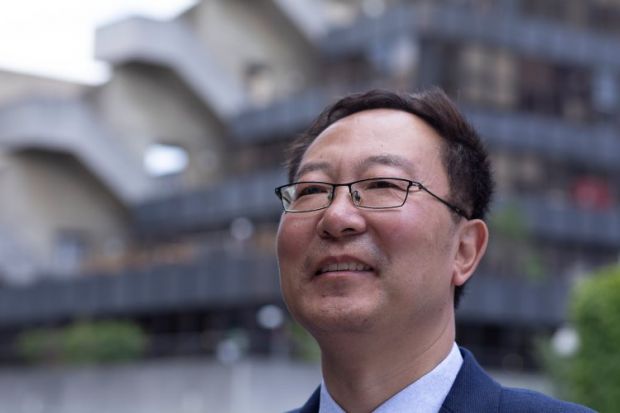The new director of the UCL Institute of Education (IoE) has said that the centre “should be at the forefront of the decolonising education agenda”.
Li Wei told Times Higher Education that he felt it was a critical issue for the IoE as it is a leading centre for education and social research, and because he hopes to build on the institution’s international and interdisciplinary collaborations.
Professor Wei, who took up the post earlier this month and was previously chair of applied linguistics and director of the Centre for Applied Linguistics at the IoE, said it was “really important” to decolonise both pedagogies and the curriculum, because “the fact that people have different knowledge systems and educational practices is a good thing. The added value of the differences must be considered very carefully and really respected.”
At the IoE, this will involve “looking at what we teach and research but also the way we train teachers for this country, for Europe and the huge number of teachers we train all over the world”. The IOE is one of the UK’s largest teacher training providers.
“This is the time for us to really reflect on what we have achieved, but also involve our partners in the Global South to revisit and revise our curriculum and pedagogy,” Professor Wei said.
“I really see the IoE leading the decolonisation agenda. It means a fundamental change of our mindset and our approach to the curriculum and how to genuinely collaborate and work together with people from the Global South and of the global majority.”
For example, university language teaching has been very much confined to European languages, but for Professor Wei, the study of a wider range of languages and broader cultures was essential.
Already the IoE’s Centre for Languages and International Education means undergraduate students can do languages from Arabic to Chinese to British Sign Language as part of their degree. However, he warned that the decline of modern languages among GCSE and A-level students was “a real worry”, especially because it has prompted a number of recent course closures in UK universities.
“How can we even think about global Britain without building the nation’s multilingual capacity? The closure of university language departments affects Britain’s capacity to produce the best linguistic and cultural talents for the 21st century and beyond,” he said.
Professor Wei added that there was growing concern that studying modern languages in higher education was becoming the preserve of students from private schools.
The institution had noted that the profile of language teachers “has changed quite considerably. It highlights the reliance of modern foreign language teaching on the independent school sector,” he said. “Because of Brexit, we are reliant on UK language students, who generally come from the independent school sector. The loss of teachers of multiple languages and cultural skills in the state school system is really significant.”
Professor Wei added that it was “disappointing” that the government’s recent proposals on initial teacher training, which would require all providers to go through a process of reaccreditation, did not reflect feedback from the sector.
“The past 18 months have demonstrated the strength of the existing system, with provision rooted in close partnership between universities and schools having maintained the vital supply of new teachers despite the immense disruptions of the Covid-19 pandemic,” he said.
Register to continue
Why register?
- Registration is free and only takes a moment
- Once registered, you can read 3 articles a month
- Sign up for our newsletter
Subscribe
Or subscribe for unlimited access to:
- Unlimited access to news, views, insights & reviews
- Digital editions
- Digital access to THE’s university and college rankings analysis
Already registered or a current subscriber? Login








